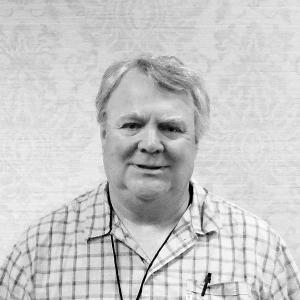Russ Brohl

Collecting Stories at the National Working Waterfronts and Waterways Symposium 2018
Collecting Stories at the National Working Waterfronts and Waterways Symposium 2018 is a project of Maine Sea Grant, College of the Atlantic, the Island Institute, and the National Working Waterfront Network.
National Capital Contracting
Russell Brohl, a retired ship captain and member of the port authority, is a long-term resident of South Bass Island, Ohio, with deep roots in the local community. His life has been intricately woven into the fabric of the island, where he has witnessed and participated in its evolution over the years. Brohl's background is a tapestry of experiences that range from the day-to-day management of island affairs to the stewardship of its natural and cultural heritage. He has been actively involved in various community roles, which have given him a unique perspective on the challenges and opportunities that come with island living. His commitment to the island is reflected in his participation in local initiatives aimed at preserving the island's character while fostering its development. Brohl's intimate knowledge of the island's history, combined with his experiences in dealing with its present dynamics, positions him as a key figure in the narrative of South Bass Island's ongoing story.
Scope and Content Note
The interview with Russell Brohl, conducted by Natalie Springuel from Maine Sea Grant, provides a comprehensive overview of life on South Bass Island, Ohio, with a particular focus on the island's tourism industry, fishing practices, and heritage conservation efforts. He discusses South Bass Island, Ohio, which has a service and tourism driven economy, and its attempts to shift from being a party island to a family destination. He speaks about the importance of protecting the area's heritage, such as the vineyards, and voices his concerns relating to tourism, the threat of algal blooms, and invasive species.Brohl discusses the unique challenges faced by island residents, including the high cost of living and limited access to resources. He reflects on the island's transformation over time, highlighting the introduction of family-oriented activities and expressing concerns about environmental issues such as algal blooms in the lake. The conversation delves into the impact of tourism on the island, noting the seasonal influx of visitors and the predominance of service-oriented businesses catering to tourists, such as bars, restaurants, and gift shops. Brohl also touches upon the island's recreational offerings, including fishing, birding, and exploring natural caves, with an emphasis on the prominence of sportfishing and the presence of a smaller commercial fishing sector. The interview encapsulates efforts to preserve the island's heritage, with specific mention of protecting grape vineyards and promoting outdoor activities like hiking and wildlife observation. Throughout the interview, Brohl underscores the importance of maintaining a sustainable labor force to support the tourism industry and the overall well-being of the island community.
Please Note: The oral histories in this collection are protected by copyright and have been created for educational, research and personal use as described by the Fair Use Doctrine in the U.S. Copyright law. Please reach out Voices@noaa.gov to let us know how these interviews are being used in your research, project, exhibit, etc. The Voices staff can help provide other useful resources related to your inquiry.
The NOAA mission is to understand and predict changes in climate, weather, oceans, and coasts, to share that knowledge and information with others, and to conserve and manage coastal and marine ecosystems and resources. The Voices Oral History Archives offers public access to a wide range of accounts, including historical materials that are products of their particular times, and may contain offensive language or negative stereotypes.
Voices Oral History Archives does not verify the accuracy of materials submitted to us. The opinions expressed in the interviews are those of the interviewee only. The interviews here have been made available to the public only after the interviewer has confirmed that they have obtained consent.
